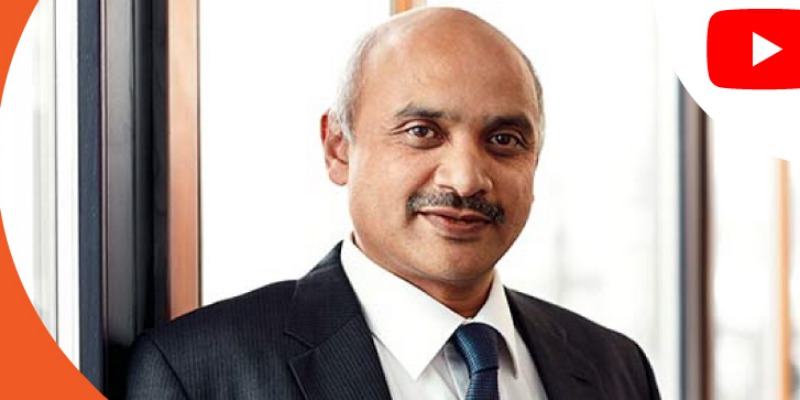Schedule a Call Back
With Scrappage Policy auto industry can revive faster
 Interviews
Interviews- Jun 01,20

The Covid 19 pandemic is having enormous effects globally. The global economy has been hit hard, even worse than the Great Depression in 1930. The automotive industry is heavily impacted due to the pandemic, globally. This year has begun with a speculation of volumes to hit 90 million worldwide and now it is predicted to fall to 68 million or may get worse. Anil Kumar, MD, SEG Automotive talks about the current challenges, implications of Covid 19, opportunities with Pushkar Oak in a video interaction.
Which of your facilities are operational? What care has been taken to ensure safety?
The sales in April are negligible. The positive news is that the factories are
opening up and we are giving more focus on the safety and health of our
workforce. This will be one of the very significant points of consideration
when we resume our operations. We had issued guidelines for resuming operations
already in April. We have resumed operations in three locationsâ€â€Bangalore,
Hassan, and Chennai on May 4. These plants are operational in just one shift.
What are the current challenges that SEG Automotive is tackling through?
The key
challenge that we are facing currently is that of ramping up our supply chain.
In the automotive industry, if one component is missing, it becomes difficult
to produce a car. Similarly, for auto component suppliers like us, all our
suppliers need to be present and active. But the current situation, some of
them could be possibly located in the containment zones. Some of our suppliers
are also active in those areas as well. For such suppliers located in the
containment areas, we have a de-risking mechanism to supply our components
safely.
Currently, how will the supplier ramp
up look like is a big concern? It has on one end demand generation and the
other control of the spread of the Covid 19.
A key factor that can influence
demand generation is government initiatives like Scrappage Policy. If Scrappage
Policy comes into the picture; we have a good chance for faster revival. GST
cut is another way and liquidity in the industry will also play a major role.
What implications do you see in the auto components post Covid 19?
We are entering a phase of new normal as Covid 19 will have its implications in the operations. The new normal will see an increase in virtual interface and usage of digital platforms; no touch or low touch at the point of contact; work from home for employees; and digital business transactions.
Manufacturing will still require people to come and add value to what they do.
But there will be a considerable change in the standard operating procedures
(SOPs). We may also see some new operational standards in manufacturing.
Our focus in the short term is the
safety and health of our associates; smooth ramp up through our value chain;
focus on liquidity; adapting to changing environments and adapt to the new
normal.
Do you believe in digitalisation to increase speed in the supply chain operations?
The digitalisation was already coming
up in 2018-19, but now post-Covid 19 the speed of digitalisation will pick up
pace. The ordering placing, the (EDIs) Electronic Data Interchanges will be
virtual and will become fast and paperless.
This is an opportunity to relook and
make systems efficient. The real value adds will not change but the way it is produced
will change, but the rest of the peripherals like office work, transactions
will have sudden change.
What opportunities Indian component manufacturers can look at post-Covid 19?
The
domestic market in India is extremely strong. India will have the highest
population of middle-class in the next 5-6 years and the employable workforce.
With ‘Make In India’ Indian component manufacturers have a lot of scope in the
domestic market itself due to disrupted supply chain.
Covid 19 has exposed a lot of supply
chain issues where companies were importing a lot of sub-assemblies,
components, subparts from Europe, China, and other nations; there is a unique
chance of localising the component and push manufacturing in a bigger way.
Doing so, it will generate economies of scale, giving cost advantage. Strong
domestic market and localisation gives us a competitive edge to become
competitive worldwide. It is a step-by-step process and India is on a journey
to become a hub for competitive export.
Related Stories

India must focus on R&D alongside electronics manufacturing: Sanjay Huprikar
In this interview with Rakesh Rao, Sanjay Huprikar, Chief Global Officer of the Global Electronics Association, explores trends in global electronics industry, India’s manufacturing ambitions, and..
Read more
How India Can Build Manufacturing Strength in a VUCA World
As global manufacturing resets under VUCA pressures, India stands at a strategic inflection point, balancing resilience, technology, sustainability and leadership to shape future supply chains, says..
Read more
How Indian Manufacturing Is Learning to Scale While Thriving in a VUCA World
Global manufacturing is being reshaped by a VUCA world, where resilience, adaptability and reliability outweigh efficiency, creating challenges and strategic opportunities for India’s manufacturin..
Read moreRelated Products

Automotive Oil Pump
Kalpak Auto Pvt Ltd offers a wide range of
automotive oil pump.
Tata Motors unveils facilities for development of Hydrogen propulsion tech
Tata Motors, India?s largest automobile company, unveiled two state-of-the-art & new-age R&D facilities for meeting its mission of offering sustainable mobility solutions. The unveilings constitute of Read more
Tata Motors plans petrol powertrain for Harrier and Safari SUVs
Tata Motors is in the process of developing a new petrol powertrain for its premium sports utility vehicles, the Harrier and Safari, as confirmed by a senior company official. Currently, these models Read more
















